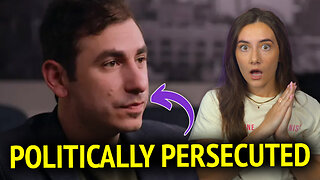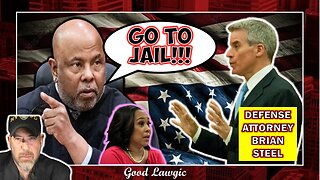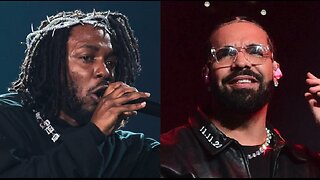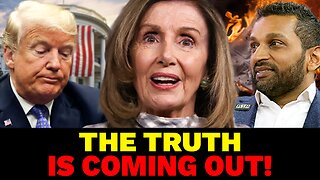The Constitution: Presidential Powers | 5-Minute Videos
Americans fought a long and bloody war to get rid of one tyrant, the English King, George III. They didn’t want to install a new one of their own making. So how did the Framers ensure that the President would have enough power to be an effective chief executive, without making him a dictator? John Yoo, Professor of Law at the University of California, Berkeley, has the answer.
#prageru #president #constitution #history #americanhistory
SUBSCRIBE 👉 https://www.prageru.com/join
Script:
How much power should we give to the President? This was one of the most vexing (and critical) questions facing the Framers of the United States Constitution in the summer of 1787.
To be effective, the President had to be perceived—both in times of war and peace—as the leader of the nation. For this to happen, he would have to be given significant authority. Americans learned this lesson in the years following the Revolutionary War when the nation floundered under the Articles of Confederation which had no provision for a chief executive.
But this chief executive couldn’t be made so strong that he could become a tyrant. Americans fought a long and bloody war to get rid of one tyrant, the English King, George III. Nobody wanted to install a new one in his place.
The Framers answer is found in Article II.
The opening sentence reads as follows: “[t]he executive power shall be vested in a President of the United States.” This might sound straightforward, but it was anything but.
Here’s why.
“The vesting clause” of Article II, as it’s known, differs significantly from the vesting clause of Article I, which concerns the powers of Congress—the House of Representatives and the Senate. Article I’s vesting clause states: “all legislative powers herein granted shall be vested in a Congress of the United States…” It then goes on to list those limited powers. That’s it. Congress can’t do anything else.
There are no such limitations specified in Article II. The difference is subtle, but important.
Whereas Congress is given specific responsibilities, the President is given broad responsibilities and wide discretion as to how he fulfills them. This is part of his executive authority.
And just what is that executive authority?
This is spelled out in Sections 2 and 3.
The President is the commander in chief of the armed services. He sets military policy.
He makes treaties with foreign countries. He sets foreign policy.
He appoints his own advisors—what became known as his cabinet. He sets domestic policy.
He appoints judges to the Supreme Court. That obviously gives him a big say in judicial policy.
And finally, “he shall take care that the laws be faithfully executed.”
This list is at once brief and vast because there’s so much involved in all these duties. Indeed, the President stands at the head of the entire administrative apparatus of the Federal government with all the rights and responsibilities that entails. For example, if the President can appoint federal officials, it stands to reason that he must be able to fire them, too.
When you realize that enforcing the law involves layers and layers of people from department heads to federal law enforcement to government lawyers, all of whom are accountable to the President, you start to grasp how much power the chief executive has.
So, how did the Framers keep the President in check?
First and foremost, they gave Congress “the power of the purse,” the power to fund the operations of the federal government. Congress can restrain the President by withholding funding.
The President literally can’t buy a light bulb for a lamp in the Oval Office without a Congressional appropriation. If the President proposes to add a new federal agency or to launch a war, Congress can bring his plans to a halt simply by refusing to fund them.
The Constitution strikes a similar balance in foreign affairs. The President, as Commander-in-Chief, controls the strategy, tactics, and deployments of the U.S. Armed Forces, and also dictates U.S. foreign policy. Only Congress, however, has the power to declare war, and the Senate, by a two-thirds majority, must consent to any treaty negotiated by the President.
Congress also has the power to impeach the President in cases of serious misconduct—treason, bribery, or other high crimes and misdemeanors. But the bar for impeachment is set very high to protect the President’s independence from Congress.
For the full script, visit: https://www.prageru.com/video/the-constitution-presidential-powers
-
 6:18
6:18
PragerU
10 days agoExperts Blame Turbulence on Climate Change, ABC Star Murdered, Mines Can't Meet EV Needs: 5/31/24
11.5K4 -
 6:27
6:27
Adam Does Movies
15 hours agoThe Watchers Movie Review - Is It Worth Watching?
6.2K4 -
 7:58
7:58
TENET Media
14 hours agoWhat Happened To Dave Chappelle? | Benny Johnson & Roseanne
22.3K49 -
 7:33
7:33
Chrissy Clark
12 hours agoANOTHER Anti-Conservative Political Persecution
21.2K8 -
 3:31:12
3:31:12
SNEAKO
9 hours agoSNEAKO X AKADEMIKS X ZHERKA
103K65 -
 2:22:57
2:22:57
Fresh and Fit
10 hours agoWhat Women THINK Men Want Debate w/ Girls
120K130 -
 3:31:00
3:31:00
GoodLawgic
9 hours agoThe Following Program: YSL Case EXPLODES When Defense Counsel Is JAILED
33.3K11 -
 8:20:15
8:20:15
Akademiks
14 hours agoYB sends message from Jail. Drake new song. Post Beef Report? Kendrick show in LA? YSL Trial wild!
129K35 -
 43:38
43:38
Bright Insight
19 hours agoYou Won’t Believe This Disturbing Gobekli Tepe Update
125K262 -
 18:06
18:06
Stephen Gardner
10 hours ago🔴Nancy Pelosi's lies FALL APART as J6 video confession LEAKS!!
58.6K160